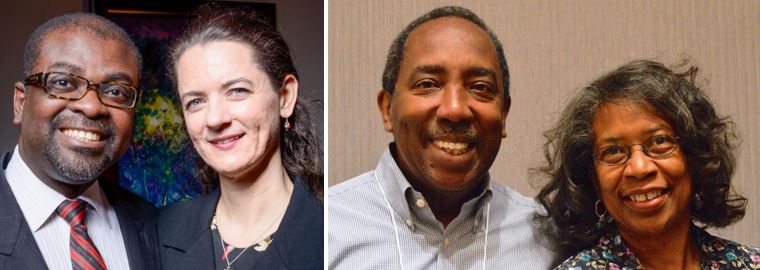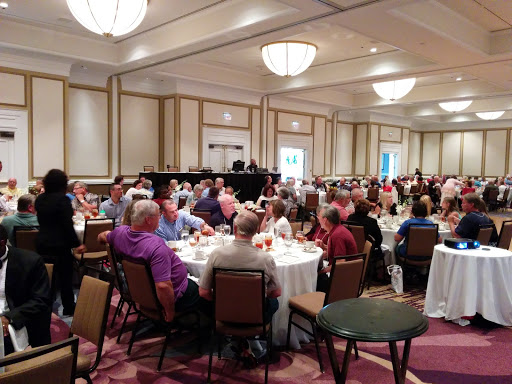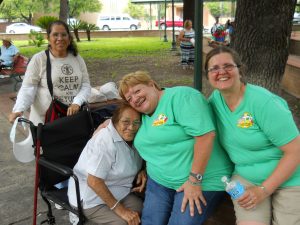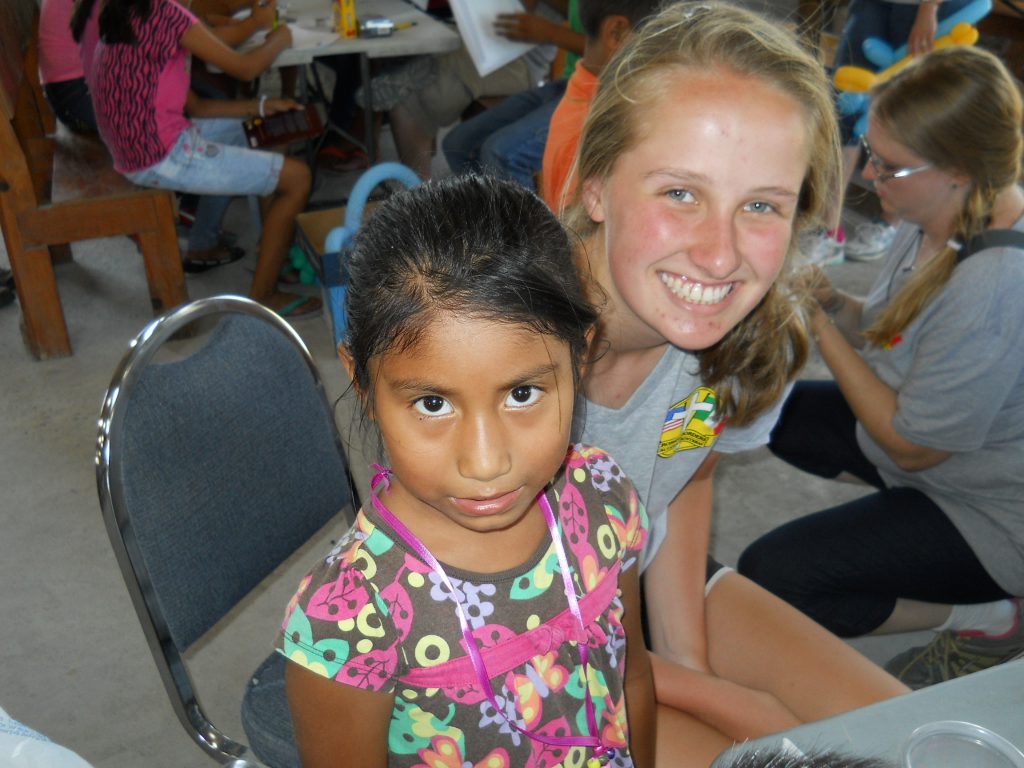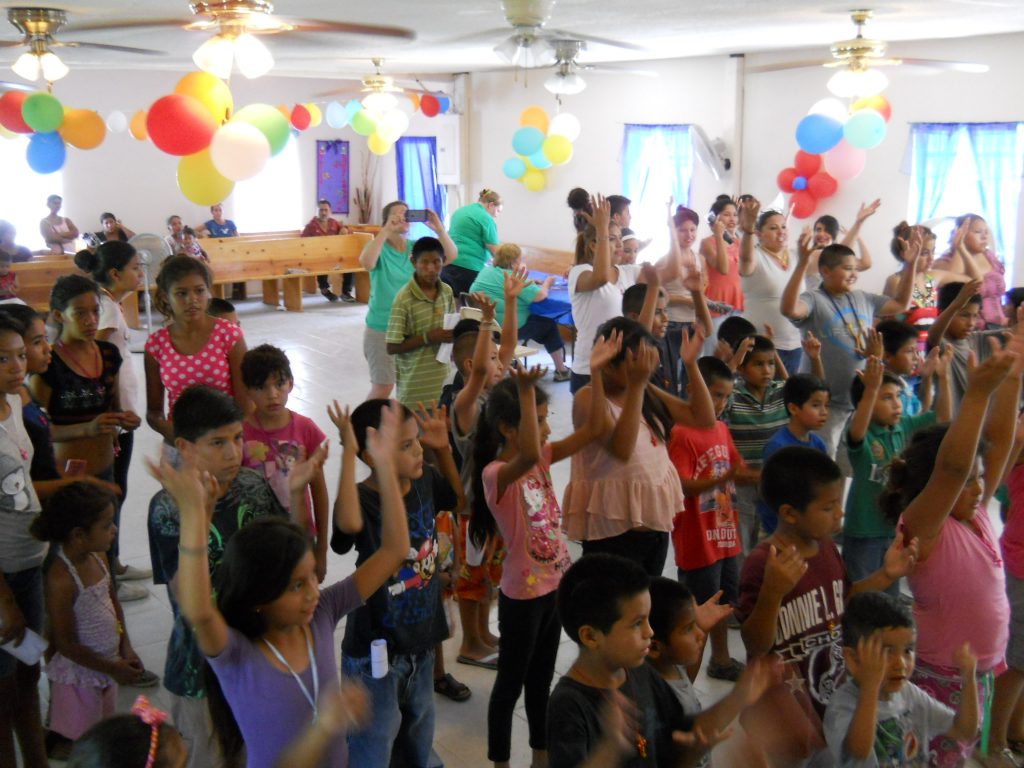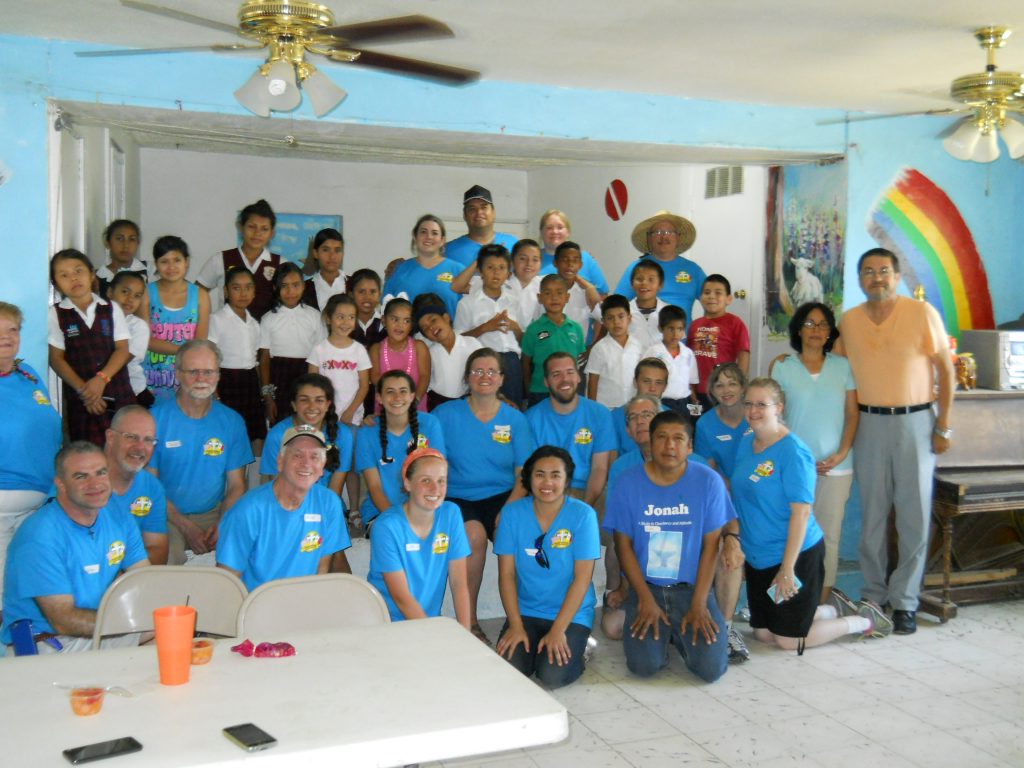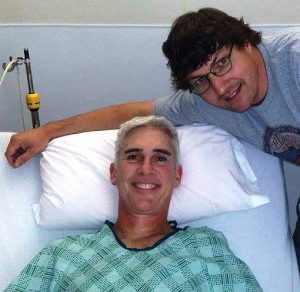Dear Brothers and Sisters

Down through the centuries, the church has taught that God, being impassible, is not subject to suffering, pain, or the ebb and flow of involuntary passions. God is thus not controlled, conditioned, manipulated or otherwise affected by anything external to himself. The impassible God is constant and faithful, exercising sovereignty over all. His impassibility is an expression of his immutable (unchanging) eternal nature, character and purposes.
The church has also taught that the Eternal Son of God, through the incarnation, took on a real and complete human nature, becoming one of us. We humans are not impassible—we are affected by all kinds of things external to ourselves; we are not constant in our emotional states and in how we voluntarily carry out our wills, purposes and ends; we also change our minds with regularity and are not always faithful. We suffer in many ways, and eventually we die.
Explaining a conundrum
Together, these factors present us with a conundrum. Given that Jesus Christ, the incarnate Son of God, is both divine and human (two natures in one person), how is it possible for him to be both impassible (in his divine nature) and passible (in his human nature) at the same time? Furthermore, given that Scripture tells us that Jesus reveals what God is like (John 14:9), are we to conclude that the eternal God is passible? Can God suffer and be acted upon by external forces? Does he have emotions (like ours)? A related question is this: Can humans hurt God emotionally? For some, the answer to these questions is a resounding “No!” They insist that God is immutable (not subject to change). But seeing God as immutable tends to portray him as distant, untouchable, iron-fisted, and immovable (fixed)—more like Aristotle’s Unmoved Mover than the God revealed in Jesus Christ. This view of God seems to rule out the reality of the incarnation, suffering and death of the Son of God. But given the reality of what God has done, how do we explain the conundrum it seems to create? I suggest we do so the way some leading theologians have by accurately clarifying what we mean by impassible and passible.
Hints of God’s passibility
We begin by noting that the Bible is full of emotional language in reference to God. Narratives in Scripture show God responding emotionally to his creation—he is said to be grieved and angry, merciful, moved to pity and full of joy. God is even described as changing his mind (“repenting”). At the same time the biblical authors proclaim that God is not like human beings and cannot be compared to creatures made by God (thus avoiding idolatry). Nevertheless, these authors use what is referred to as anthropomorphisms—language borrowed from human creatures to speak of God. But most tellingly, as I’ve already noted, Scripture affirms that Jesus shows us who God is and what he is like (John 14:9). Indeed it is through the Son that we know the Father.
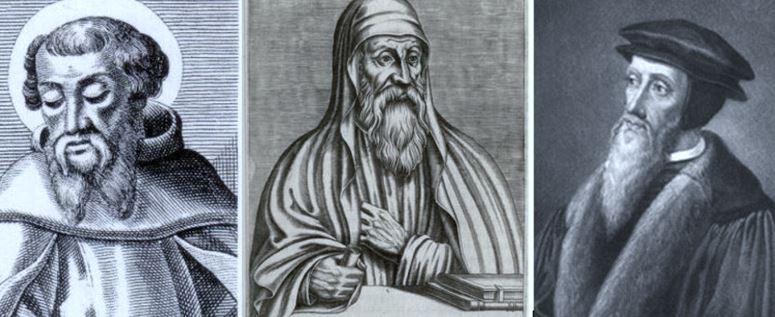
Throughout Christian history, there have always been theologians who, in faith, sought to understand what Jesus shows us about the eternal, sovereign, faithful and constant God. Three notable examples (pictured above) are Irenaeus and Origen (3rd century) and Calvin (16th century). Irenaeus wrote this:
The [Gnostics] endow God with human affections and emotions. However, if they had known the Scriptures, and had been taught by the truth, they would have known beyond doubt that God is not like men. His thoughts are not like the thoughts of men. For the Father of all is at a vast distance from those dispositions and passions that operate among men.
Origen seemed to have mixed feelings. On the one hand he argued that God is entirely without passion and destitute of all such emotions. On the other hand, he wrote this:
The Father himself and the God of the whole universe is “long-suffering, full of mercy and pity.” Must he not then, in some sense, be exposed to suffering?… The Father himself is not impassible.
John Calvin followed suit by writing that “God does not have blood, does not suffer, cannot be touched with hands.” It seems that most theologians prior to the 19th century believed and taught that God does not suffer as we do (and thus is impassible). But it’s important to note that in doing so they regularly distinguished between passions and affections. Affections, they stated, come from correct reasoning and are active and voluntary, while passions are passive and involuntary, often associated with sinful inclination. While humans are subject to being overcome by passions (and thus swept into sin) God, being perfect, does not have that type of emotion. His nature is perfect love, which cannot be diminished or lessened. In other words, God’s love is changeless. His emotional life is thus not identical to ours as humans. If God were subject to involuntary passions (as they define that word), he would be a God of misery—the unhappiest being in the universe.
In saying that God is impassible (not subject to passions), these theologians were not saying that God is indifferent or apathetic. Though transcendent, God is also immanent and present—not merely interested in the world he created, but involved in it through his plan of redemption. God is so dynamically active in his Triune life that he cannot change to become more active or dynamic than he already is. However, God’s immutability does not mean he is a motionless, “unmoved mover.” Rather God is always relational, active and dynamic. In that sense, we can say that God truly does have affections—God can chose to be affected by what he has created and loves. It’s vital that we keep this in mind when we talk about God as impassible. It is true that God does not suffer as we suffer. But there is another side to his impassibility, and understanding it is part of what makes the gospel truly good news.
God is for us and with us
It is true that God, being uncreated and unchanging is not in the same mess we are in. Although he (ontologically) is outside our mess, he is intimately involved with us, at work to permanently clean up our mess—God is freely responsive to us and our needs. Our ultimate consolation is that from the beginning, Father, Son and Holy Spirit are in perfect agreement with their plan to redeem humanity. A central part of that plan was for the Son of God to become incarnate, and in doing so lay aside his immunity to pain and suffering so that as one of us, he might suffer for us and with us.

Modern theologians have seen a need to bring out the truth of God’s kind of suffering in and through the incarnate Son. Karl Barth spoke of God‘s own heart suffering on the cross. Dietrich Bonhoeffer wrote that “our God is a suffering God.” Jürgen Moltmann wrote that on Good Friday the Father suffered the loss of his Son. He also noted that the revelation that God weeps with those who weep is one of the answers to the problem of pain. Our Triune God of love can be fully with us in our sorrows and comfort us in our griefs. In order to bear witness to the total truth of God as revealed in Jesus Christ, T. F. Torrance recognized the need to speak paradoxically when addressing God’s impassibility and passibility:
On the one hand the notion of divine passibility would appear to call in question the steadfastness or immutability of God in face of the pressure of outside forces upon him as if he could be moved by what is other than God. On the other hand the notion of divine impassibility would evidently exclude the possibility of any real movement of God in a loving and vicarious self-identification with us in the incarnation and redemption which would posit a deep gulf between God as he is in himself and God as he is towards us. On the other hand, therefore, we cannot but hold that God is impassible in the sense that he remains eternally and changelessly the same, but on the other hand, we cannot but hold that God is passible in that what he is not by nature he became in taking upon himself “the form of a servant.” He became one of us and one with us in Jesus Christ within the conditions and limits of our creaturely human existence and experience in space and time, although without in any way ceasing to be God who is transcendent over all space and time. That is surely how we must think of the passibility and impassibility of God: their conjunction is as incomprehensible as the mode of the union of God and man in Christ. Just as in creation and incarnation God acted in entirely new ways while remaining unchanged in his divine nature, just as he became man without ceasing to be God and became creature without ceasing to be creator, so he became passible without ceasing to be impassible. (The Christian Doctrine of God: One God, Three Persons, pp. 250-251)
The passibility of the impassible triune God
On the cross of Christ, the one whole God suffered. Yet God was not suffering involuntary pain or a change in his nature, character or ultimate purpose. While the Son, in his humanity, suffered what we suffer, the Father, in his non-incarnate way, suffered what the Son went through. Likewise, the Spirit suffered what the Son went through (in a way appropriate to being the Spirit of the Son). In Christ, the whole God fully understands our pain and suffering.
Through the mediation of Christ, the whole of God’s love, in order to bring us comfort and ultimately to overcome it and lead us on to fullness of life, enters our pain and suffering with us and for us. Doing so involves bringing judgment on the sin and evil that causes our suffering. We see this in the crucifixion of Jesus, which leads to his resurrection. T.F. points out that it was on the cross that we see the “deepest point of our relations with God in judgment and suffering,” as Christ, fully human, took on the sufferings of the world due to sin and evil. But Jesus not only took on that suffering, he redeemed it.
The resurrected Christ is now with the Father, still understanding our pain, no longer feeling it, but empathizing with us in it. But we must not take such empathy superficially. Salvation requires more than someone to identify with and feel our pain—Jesus came to be our Savior and Redeemer, not just a sympathizer. While he took on flesh to share in suffering with his brothers and sisters, we must never forget Jesus did not suffer simply to identify with us, or to know what we feel when we suffer. Such a superficial empathy would leave us in the guilt of sin and under the power of evil and death. By his taking on our fallen human nature, and entering into our fallen condition, he came to condemn evil and rescue us from it at his own cost, reclaiming us for God. Jesus rejected all sin and evil and conquered all that causes pain: evil, sin, death and the devil. In doing so he heals our alienation and estrangement from God.
God’s great work of love
Because of this total victory, we can see the depth of God’s freely-given grace, even taking on our guilt and sin-filled condition to overcome it. In this great work of love poured out on us, we can see just how responsive God is to us in the depth of our greatest need. He held nothing back. But that very act of God’s personal responsiveness, his act of drawing near and being affected by us (to the point of the Son of God going through judgment against sin and the suffering of human shame and death) is the greatest demonstration of our Triune God’s constancy, faithfulness and love. In Jesus Christ, the one who became flesh, who then suffered, was crucified, buried, risen and then ascended on our behalf, we see who God is in his eternal being—the God of love who is “the same yesterday, and today and forever” (Heb. 13:8).
In praise of the impassible, passible God,
Joseph Tkach
_______________
PS: With each report of the terrible acts of violence in the US and various places around the world over the last couple of weeks, a Scripture kept coming to mind: “I know, O LORD, that the way of man is not in himself, that it is not in man who walks to direct his steps” (Jeremiah 10:23 ESV). Each day that passes in this fallen world brings us closer to Jesus’ return in glory. That reality gives me tremendous hope, whether his return is in my lifetime or not. As we wait, we will continue to have times that will call forth from the people of God what is known as lament, as noted in this recent post at Patheos:
To lament is to come alongside those who grieve, to sit with them (literally or figuratively) in the silence and to recognize there that in God’s interconnected creation, their pain is our pain. We might, in the silence, consider how it is that we share in the same pain. To lament is not to offer words of comfort; it is not to try to fix the problem or to prevent it from ever happening again. …Lament is a time for the hard work of searching our own souls, for the the sorts of rebellion and violence that if untended could burst out in violence toward others. I am reminded here of the words of Thomas Merton: “Instead of hating the people you think are war-makers, hate the appetites and disorder in your own soul, which are the causes of war. If you love peace, then hate injustice, hate tyranny, hate greed—but hate these things in yourself, not in another.”
Now is a time for lament, and I know you join me in praying for God’s mercy and grace along with protection of the innocent. Let us also pray that God hastens the day when we’ll celebrate the coming of the fullness of his kingdom. Come Lord Jesus.


